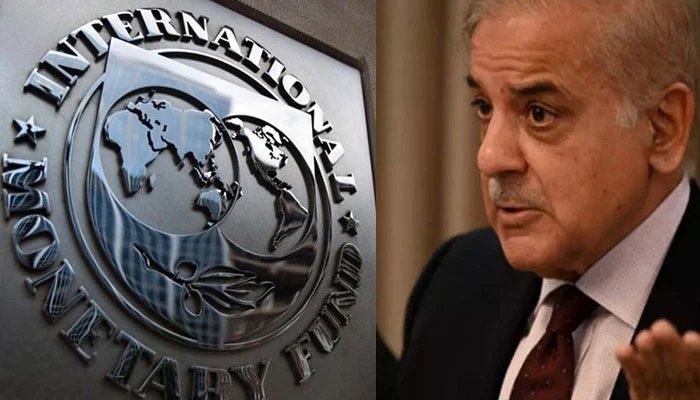Pakistan economic crisis: Pakistan is facing “exceptionally high” economic risks, IMF said in its report analysing the country’s macroeconomic outlook.
Pakistan requires another International Monetary Fund (IMF) programme and assistance from other multilateral lenders beyond the impending election cycle and the current standby agreement, the lender stated in a report released on Tuesday, according to Dawn.
“Resolving Pakistan’s structural challenges, including long-term BOP [balance of payments] pressures, will require continued adjustment and creditor support beyond the current programme period,” stated the Fund in a 120-page report analysing Pakistan’s macroeconomic outlook.
Dawn reported that the assessment is based on the Memorandum of Economic and Fiscal Policies (MEFP), which was signed by Finance Minister Ishaq Dar and State Bank Governor Jameel Ahmed.
Dawn is one of the Pakistani dailies that reports on the country’s Social, Political, and Economic issues.
The report states, “A potential successor arrangement could help anchor the policy adjustment required to restore Pakistan’s medium-term viability and ability to repay.”
“Difficult obstacles”
According to the IMF assessment, Pakistan’s economic challenges are complex and multifarious, and the associated risks are exceptionally high.
“Tackling them necessitates consistent implementation of agreed-upon policies and ongoing financial support from external partners. Consistent and decisive implementation of programme agreements will be crucial for mitigating risks and preserving macroeconomic stability, according to the report.
The lender insists that an additional IMF programme will be required to address structural problems. According to the report, the government has agreed to notify the public whenever electricity rates increase by 5 Pakistan Rupees (PKR) per unit and petrol prices increase by more than 40 percent. According to Dawn, this is because circular debt in the gas sector is now competing with losses in the power sector.
Dawn reported that the government has promised to renegotiate power-purchase agreements with the remaining power producers (including the Chinese) or extend their debt servicing terms.
In the gas sector, the government has committed to providing prompt notification of gas tariff adjustments determined by Ogra, in addition to combining the gas rates for both domestic and imported natural gas using a weighted average tariff.
The government has also pledged to protect the fiscal programme outlined in the most recent budget and other IMF commitments.
Until the formation of a new government following the elections (except in the case of a severe natural disaster), the government will not sanction supplemental grants for any additional unbudgeted spending above the level approved by parliament for the current fiscal year (except in the case of a severe natural disaster).
The government has also “committed not to introduce any new tax amnesties or grant any new tax exemptions in 2023-24, including through the budget or statutory regulatory orders, without the prior approval of the assembly.”
Dawn reported that the government has reached agreements with each province regarding their commitment to achieving an end-FY24 fiscal position consistent with the fiscal year’s general government primary balance goal of PKR 401 billion and maintaining a focus on critically urgent energy sector policies, including not introducing any fuel subsidies or cross-subsidy schemes in FY23 and beyond.
In addition, the government has pledged to ensure monetary and financial stability by reverting to a market-determined exchange rate, bringing inflation closer to the target rate, and rebuilding foreign exchange reserves.
Dawn reported that the statement said the authorities would refrain from providing market participants with exchange rate guidance or preferences and from regulating the demand for foreign currency through administrative action.
Also read this:North Korea Tests Missiles as US Nuclear Sub Sails to South
The authorities have committed to maintaining the average premium between interbank and open market rates at no more than 1.25 percent and no less than minus 1.25 percent during any consecutive five business day period and to publishing daily interbank and open market exchange rates.




